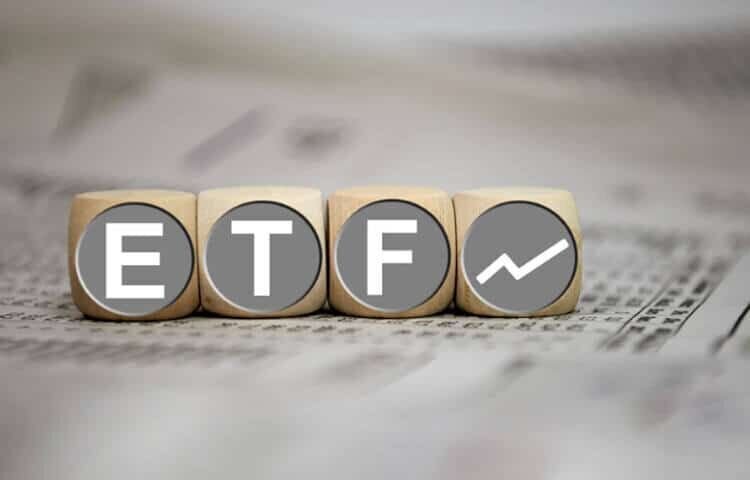‘ETFs, proper option for stock market’s new investors’

TEHRAN- The director for research and development in Tehran Stock Exchange (TSE) said that the new investors and people who do not have enough knowledge and time to invest in the capital market, can enter the market through the exchange-traded funds (ETFs), and try to enter their investments in this market.
“Choosing an investment strategy is a complex process. Choosing the right portfolio has its own mechanism. Those who are successful in the capital market have relevant education and studies as well as sufficient experience”, Reza Kiani said, adding, “In the capital market, professional investors also sometimes fail and improve their performance. Therefore, investing in the capital market is a highly specialized and scientific process and requires experience, and if investors do not have the appropriate knowledge and experience, they may face losses.”
“ETFs operate under the supervision of the Securities and Exchange Organization (SEO); their performance is under the supervision of this organization; their asset management is performed by expert and professional managers; and their past performance can be observed by investors”, he added.
Kiani said that investment making through the ETFs is an easy thing, adding, shares can be easily bought through these funds.
He further referred to the performance of the ETFs and said these funds have mostly had an acceptable performance.
According to Note 2 of the budget law of the past Iranian calendar year (ended on March 20), the government is allowed to offer and sell its remaining shares in the state-owned companies in the usual way or through the exchange-traded funds.
Following this legal capacity, at the beginning of the previous year, the cabinet allowed the Ministry of Finance and Economic Affairs to transfer the remaining government shares in the framework of three ETFs.
An ETF is an investment fund traded on stock exchanges, much like stocks. An ETF holds assets such as stocks, commodities, or bonds and generally operates with an arbitrage mechanism designed to keep it trading close to its net asset value, although deviations can occasionally occur.
In May 2020, the government sold shares in three banks and two insurance companies via the first exchange-traded fund (dubbed Dara First).
The bank-based ETF holds 17 percent of government stake in Tejarat Bank, 17 percent in Bank Mellat, 18.32 percent in Bank Saderat Iran, 17.34 percent in Alborz Insurance Company and 11.44 percent in Amin Reinsurance Company.
Dara First, listed on Tehran Stock Exchange, which is Iran’s major stock exchange, was the first fund from a series of three ETFs, through them shares of some state-owned organizations and companies are planned to be offered.
The shares to be offered via the mentioned Iranian ETFs belong to those governmental bodies defined in Iran’s privatization program, a comprehensive plan seriously followed up by the government to downsize and reduce its role in the economy.
The second ETF (dubbed First Refinery, or Dara Second), which holds government shares in four major oil refining companies, namely Tehran Oil Refining Company, Isfahan Oil Refining Company, Tabriz Oil Refining Company and Bandar Abbas Oil Refining Company, was offered in late August 2020.
The government owns 20 percent of shares in each refinery.
It has also a plan to divest shares in giant auto and metal companies through a third ETF (dubbed Dara Third). The third fund is expected to hold 12.05 percent of government stakes in the National Iranian Copper Industry Company, 17.2 percent in Mobarakeh Steel Company, 14.04 percent in Iran Khodro, and 23 percent in SAIPA (the two main domestic carmakers).
Now, while the subject of second and third ETFs offerings is still hot in the media and there is a lot of speculation about the timing of these offerings, some experts and those active in the capital market believe that the ETF idea is essentially wrong, saying that although the government may have achieved its goals of offering ETFs, but the capital market and shareholders have not benefited.
Behrouz Shohadaei, a capital market expert, believes that the way the government has planned for these offerings is wrong from the beginning and the government should not continue to insist on staying in the wrong direction.
In an interview, the expert has said, “As sanctions and financial problems escalated, the government decided to provide some of the funding it needed, but still refused to provide management to those who owned it. So the government decided to pursue the transfer of government shares through ETFs, thereby trying to raise some of its funding.”
“What we are seeing in the market now is that this type of divesting has not worked well. The government planned a wrong thing and still insists on it. No one doubts that the government should be downsized, but it has not done the right thing in this regard”, he concluded.
MA/MA
